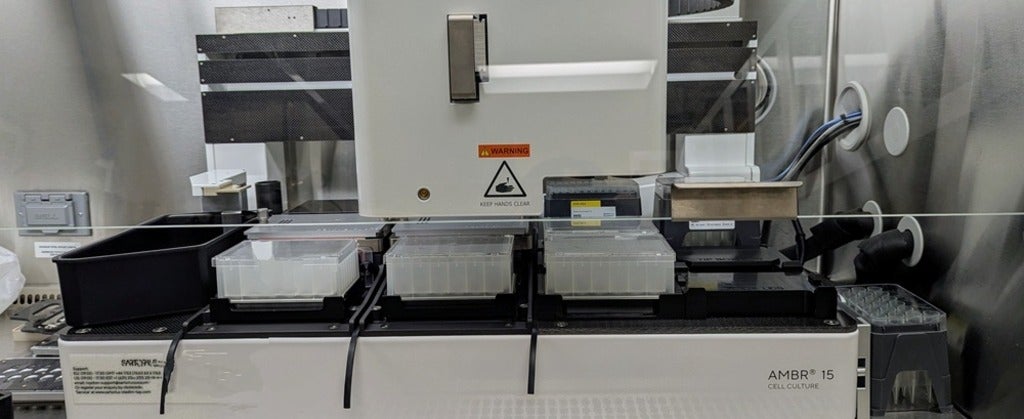Chemical Engineering leads in health technology
The Department of Chemical Engineering at the University of Waterloo is equipping students with cutting-edge tools to advance research in health and biotechnology. Two new pieces of equipment, an Ambr-15 Automated Micro Bioreactor System and a Liquid Chromatography-Mass Spectrometry (LC-MS) instrument, are opening doors for exciting graduate-level research in bioprocessing and biopharmaceuticals.
Chemical engineers play a key role in designing and optimizing processes for producing vaccines, monoclonal antibodies, and other biologic medicines. They also use synthetic biology to engineer cells that produce therapeutic molecules.
Professor Hector Budman, who collaborates closely with industrial partners in biotechnology, recently received an Ambr-15 Automated Micro Bioreactor System through a donation from Sartorius. This advanced system allows students and researchers to grow cells and optimize culture conditions for producing biologics such as vaccines and monoclonal antibodies, which are widely used to treat diseases.







